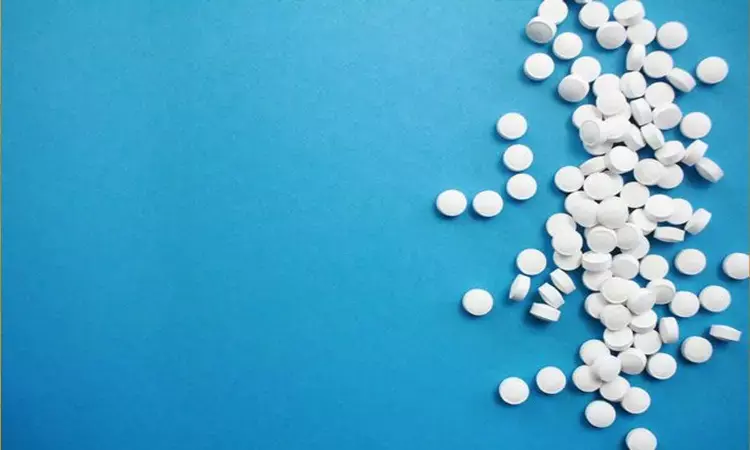- Home
- Medical news & Guidelines
- Anesthesiology
- Cardiology and CTVS
- Critical Care
- Dentistry
- Dermatology
- Diabetes and Endocrinology
- ENT
- Gastroenterology
- Medicine
- Nephrology
- Neurology
- Obstretics-Gynaecology
- Oncology
- Ophthalmology
- Orthopaedics
- Pediatrics-Neonatology
- Psychiatry
- Pulmonology
- Radiology
- Surgery
- Urology
- Laboratory Medicine
- Diet
- Nursing
- Paramedical
- Physiotherapy
- Health news
- Fact Check
- Bone Health Fact Check
- Brain Health Fact Check
- Cancer Related Fact Check
- Child Care Fact Check
- Dental and oral health fact check
- Diabetes and metabolic health fact check
- Diet and Nutrition Fact Check
- Eye and ENT Care Fact Check
- Fitness fact check
- Gut health fact check
- Heart health fact check
- Kidney health fact check
- Medical education fact check
- Men's health fact check
- Respiratory fact check
- Skin and hair care fact check
- Vaccine and Immunization fact check
- Women's health fact check
- AYUSH
- State News
- Andaman and Nicobar Islands
- Andhra Pradesh
- Arunachal Pradesh
- Assam
- Bihar
- Chandigarh
- Chattisgarh
- Dadra and Nagar Haveli
- Daman and Diu
- Delhi
- Goa
- Gujarat
- Haryana
- Himachal Pradesh
- Jammu & Kashmir
- Jharkhand
- Karnataka
- Kerala
- Ladakh
- Lakshadweep
- Madhya Pradesh
- Maharashtra
- Manipur
- Meghalaya
- Mizoram
- Nagaland
- Odisha
- Puducherry
- Punjab
- Rajasthan
- Sikkim
- Tamil Nadu
- Telangana
- Tripura
- Uttar Pradesh
- Uttrakhand
- West Bengal
- Medical Education
- Industry
Gabapentin, benzodiazepine combo safe for treatment of benzodiazepine withdrawal: Study

USA: Gabapentin and benzodiazepine combination is safe for the treatment of benzodiazepine withdrawal, according to findings from a recent study. The results were presented at the American Psychiatric Association Annual Meeting (virtual meeting) held from May 1-3, 2021.
Gabapentin has been used as an adjunct treatment for alcohol withdrawal. Considering the similar mechanism shared by the two abusable substances (alcohol and benzodiazepine), gabapentin can also be used for patients undergoing benzodiazepine withdrawal.
Against the above background, Edison Leung, a second-year psychiatry resident at UT Health, and colleagues conducted a retrospective study of gabapentin as an adjunct treatment for benzodiazepine withdrawal and dependence in patients treated for benzodiazepine withdrawal who were given gabapentin for anxiety or neuropathic pain.
The researchers screened patient records from a large inpatient psychiatric hospital. A total of 58 patients were identified who were given gabapentin and benzodiazepine for treatment of withdrawal. Additionally, 70 patients undergoing benzodiazepine withdrawal symptoms but not given gabapentin served as the control arm of the study.
The researchers measured acute withdrawal symptoms by the Clinical Institute Withdrawal Assessment of Alcohol Scale score, and recorded gender, race, medications, length of stay, medical issues, and readmissions.
Key findings of the study include:
- A total daily dose of 600 mg to 1,800 mg of gabapentin reduced withdrawal symptoms.
- There were no reported complications with the combination of gabapentin and benzodiazepines in the patients.
- For patients undergoing benzodiazepine withdrawal, gabapentin as an adjunct to benzodiazepines reduces the hospital length of stay, the total dosage amount of benzodiazepines administered and the number of times benzodiazepines are administered.
Also Read: Gabapentinoids and opioids combo increases opioid overdose risk postoperatively
"Overall, this is a promising new method to help patients undergoing benzodiazepine withdrawal to use less benzodiazepines in the treatment itself," Leung said.
Reference:
Leung E, et al. Poster 4445. Presented at: American Psychiatric Association Annual Meeting; May 1-3, 2021 (virtual meeting).
Dr Kamal Kant Kohli-MBBS, DTCD- a chest specialist with more than 30 years of practice and a flair for writing clinical articles, Dr Kamal Kant Kohli joined Medical Dialogues as a Chief Editor of Medical News. Besides writing articles, as an editor, he proofreads and verifies all the medical content published on Medical Dialogues including those coming from journals, studies,medical conferences,guidelines etc. Email: drkohli@medicaldialogues.in. Contact no. 011-43720751


